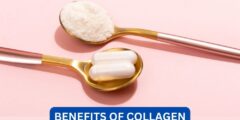Niacin, also known as vitamin B3, is an essential nutrient that plays a crucial role in maintaining our overall health and well-being. It is a water-soluble vitamin that is found in many foods, including meat, fish, eggs, and dairy products. Niacin is also available in supplement form and is often used to treat various health conditions. In this article, we will explore the benefits of niacin and how it can improve our health in various ways.
Contents
What is Niacin and How Does it Work?
Niacin is a part of the vitamin B complex, which consists of eight different vitamins that are essential for our body’s proper functioning. It is also known as nicotinic acid or vitamin B3 and is found in two forms: nicotinic acid and nicotinamide. Both forms are converted into the active form of niacin, called nicotinamide adenine dinucleotide (NAD), in our body.
NAD is a coenzyme that plays a crucial role in various metabolic processes, including converting food into energy, repairing DNA, and maintaining the health of our cells. It also helps in the production of various hormones and neurotransmitters, which are essential for our body’s proper functioning.
The Benefits of Niacin
Niacin offers a wide range of health benefits, and here are some of the most significant ones:
Read:What are the health benefits of carrots?- Improves Cardiovascular Health: Niacin has been found to be highly beneficial for our cardiovascular health. It helps in lowering the levels of bad cholesterol (LDL) and triglycerides while increasing the levels of good cholesterol (HDL). This, in turn, reduces the risk of heart diseases, such as heart attacks and strokes.
- Boosts Brain Function: Niacin is essential for the proper functioning of our brain. It helps in the production of neurotransmitters, such as serotonin, dopamine, and norepinephrine, which are responsible for regulating our mood, memory, and cognitive function. Niacin deficiency has been linked to various mental health conditions, such as depression, anxiety, and schizophrenia.
- Supports Skin Health: Niacin is often used in skincare products due to its ability to improve the health of our skin. It helps in reducing inflammation, promoting collagen production, and improving the skin’s barrier function. Niacin has also been found to be effective in treating skin conditions, such as acne, rosacea, and eczema.
- Regulates Blood Sugar Levels: Niacin plays a crucial role in regulating our blood sugar levels. It helps in converting glucose into energy and maintaining insulin sensitivity. This makes it beneficial for people with diabetes or those at risk of developing the condition.
- Supports Digestive Health: Niacin is essential for maintaining a healthy digestive system. It helps in the production of digestive enzymes, which are responsible for breaking down food and absorbing nutrients. Niacin deficiency has been linked to digestive issues, such as diarrhea, constipation, and bloating.
- Reduces Inflammation: Niacin has anti-inflammatory properties, which makes it beneficial for reducing inflammation in the body. Chronic inflammation has been linked to various health conditions, such as heart disease, diabetes, and cancer. By reducing inflammation, niacin can help in preventing these diseases.
How to Get Enough Niacin
The recommended daily intake of niacin varies depending on age, gender, and health status. The recommended dietary allowance (RDA) for niacin is 16 mg/day for adult men and 14 mg/day for adult women. Pregnant and breastfeeding women may require higher amounts of niacin.
Read:What are the benefits of riding a bike?Niacin is found in many foods, including:
- Meat (beef, chicken, turkey)
- Fish (tuna, salmon, sardines)
- Eggs
- Dairy products (milk, cheese, yogurt)
- Legumes (peas, beans, lentils)
- Nuts and seeds (almonds, peanuts, sunflower seeds)
- Whole grains (brown rice, quinoa, oats)
Fortified foods, such as cereals and bread, also contain niacin. However, if you are not getting enough niacin from your diet, you may consider taking a niacin supplement. Niacin supplements are available in various forms, including capsules, tablets, and extended-release tablets. It is essential to consult a healthcare professional before starting any supplement to determine the right dosage for your specific needs.
The Risks of Niacin Deficiency and Overdose
Niacin deficiency is rare in developed countries, as most people get enough niacin from their diet. However, certain health conditions, such as alcoholism, anorexia, and Crohn’s disease, can increase the risk of niacin deficiency. Some common symptoms of niacin deficiency include fatigue, weakness, digestive issues, and skin problems.
On the other hand, taking too much niacin can lead to niacin overdose, also known as niacin toxicity. This can cause symptoms such as flushing, itching, nausea, and liver damage. It is essential to follow the recommended dosage and consult a healthcare professional before taking any niacin supplements.
Read:what are the health benefits of cinnamonCase Studies and Statistics
Several studies have been conducted to explore the benefits of niacin. Here are some notable case studies and statistics:
- A study published in the Journal of Clinical Lipidology found that niacin supplementation significantly reduced the risk of cardiovascular events, such as heart attacks and strokes, in patients with high cholesterol levels.
- A study published in the Journal of Psychiatric Research found that niacin supplementation improved the symptoms of schizophrenia in patients who were not responding to conventional treatment.
- A study published in the Journal of Investigative Dermatology found that topical application of niacin improved the symptoms of rosacea in patients with mild to moderate disease.
- According to the National Institutes of Health, approximately 16% of the US population has low levels of niacin in their diet, which can increase the risk of various health conditions.
In Conclusion:
Niacin is an essential nutrient that offers a wide range of health benefits. It plays a crucial role in maintaining our cardiovascular, brain, skin, and digestive health. Niacin deficiency can lead to various health issues, while taking too much niacin can cause toxicity. It is essential to get enough niacin from our diet or consider taking a supplement after consulting a healthcare professional. With its numerous benefits, niacin is undoubtedly a powerful vitamin that should not be overlooked in our quest for optimal health.









